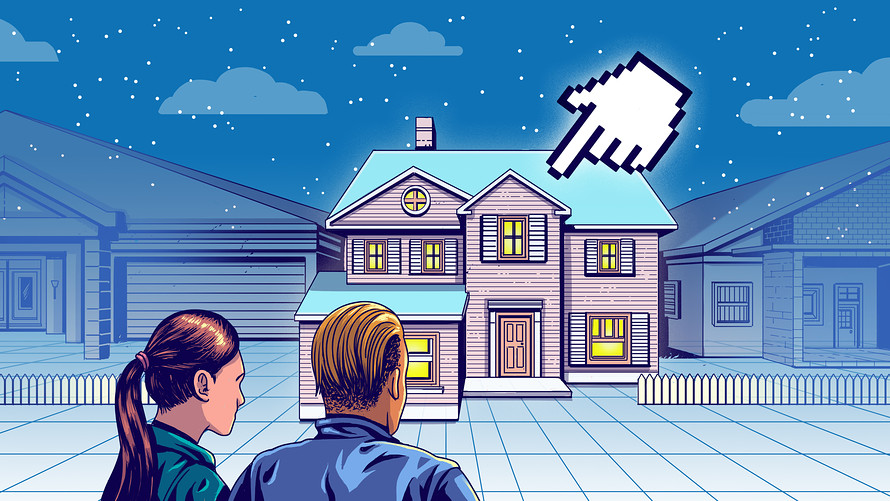
On a recent weeknight, Dahlia and Adam Brown came home to their spacious Colonial on a quiet cul-de-sac in Marietta, Ga. The Browns both work demanding jobs and have two young sons. They bought the house in June using Knock, a company that’s trying to revolutionize the real-estate industry with a “home trade-in platform” making it easier to buy and sell at once. That solution was ideal for the Browns, who are just as busy as most couples but more introverted, making the idea of prospective buyers tramping through their private space seem excruciating.
Across town, Martha Seay was overseeing movers in a rambling brown ranch-style house nestled among tall hickory trees. The day before, she had closed on the sale of the house, where she and her husband had raised their family, to the real-estate company Zillow. The next day she would leave for Florida’s Gulf Coast, where the couple had just bought a retirement home.
Seay had wanted to move for years, but the idea of selling was daunting: “I said, maybe next year, maybe next year, maybe next year, because I didn’t want to go through all the crap you have to go through.” Selling to a company took just a few clicks and one visit from an appraiser. Seay was delighted. “I cannot tell you how much the stress was relieved,” she said.
The Browns and Seay are the consumer faces of the disruption that’s currently roiling residential real estate. As different models — home trade-in companies, “iBuyers,” partnerships between new upstarts and old stalwarts — clamor for attention, lots of attention is focused on trying to determine what’s here to stay and what’s just an awkward rough draft — the Pets.com of the housing market.
